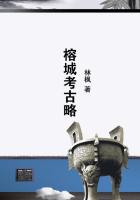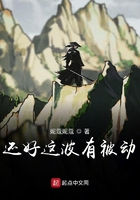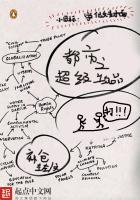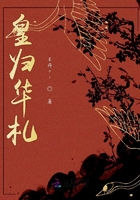INDUSTRIAL PROGRESS AND THE PROLETARIAT
Russia till Lately a Peasant Empire--Early Efforts to Introduce Arts and Crafts--Peter the Great and His Successors--Manufacturing Industry Long Remains an Exotic--The Cotton Industry--The Reforms of Alexander II.--Protectionists and Free Trade--Progress under High Tariffs--M. Witte's Policy--How Capital Was Obtained--Increase of Exports--Foreign Firms Cross the Customs Frontier--Rapid Development of Iron Industry--A Commercial Crisis--M. Witte's Position Undermined by Agrarians and Doctrinaires--M. Plehve a Formidable Opponent--His Apprehensions of Revolution--Fall of M.
Witte--The Industrial Proletariat.
Fifty years ago Russia was still essentially a peasant empire, living by agriculture of a primitive type, and supplying her other wants chiefly by home industries, as was the custom in Western Europe during the Middle Ages.
For many generations her rulers had been trying to transplant into their wide dominions the art and crafts of the West, but they had formidable difficulties to contend with, and their success was not nearly as great as they desired. We know that as far back as the fourteenth century there were cloth-workers in Moscow, for we read in the chronicles that the workshops of these artisans were sacked when the town was stormed by the Tartars. Workers in metal had also appeared in some of the larger towns by that time, but they do not seem to have risen much above the level of ordinary blacksmiths. They were destined, however, to make more rapid progress than other classes of artisans, because the old Tsars of Muscovy, like other semi-barbarous potentates, admired and envied the industries of more civilised countries mainly from the military point of view. What they wanted most was a plentiful supply of good arms wherewith to defend themselves and attack their neighbours, and it was to this object that their most strenuous efforts were directed.
As early as 1475 Ivan III., the grandfather of Ivan the Terrible, sent a delegate to Venice to seek out for him an architect who, in addition to his own craft, knew how to make guns; and in due course appeared in the Kremlin a certain Muroli, called Aristotle by his contemporaries on account of his profound learning. He undertook "to build churches and palaces, to cast big bells and cannons, to fire off the said cannons, and to make every sort of castings very cunningly"; and for the exercise of these various arts it was solemnly stipulated in a formal document that he should receive the modest salary of ten roubles monthly. With regard to the military products, at least, the Venetian faithfully fulfilled his contract, and in a short time the Tsar had the satisfaction of possessing a "cannon-house," subsequently dignified with the name of "arsenal."
Some of the natives learned the foreign art, and exactly a century later (1856) a Russian, or at least a Slav, called Tchekhof, produced a famous "Tsar-cannon," weighing as much as 96,000 lbs.
The connection thus established with the mechanical arts of the West was always afterwards maintained, and we find frequent notices of the fact in contemporary writers. In the reign of the grandfather of Peter the Great, for example, two paper-works were established by an Italian; and velvet for the Tsar and his Boyars, gold brocades for ecclesiastical vestments, and rude kinds of glass for ordinary purposes were manufactured under the august patronage of the enlightened ruler. His son Alexis went a good many steps further, and scandalised his God-fearing orthodox subjects by his love of foreign heretical inventions. It was in his German suburb of Moscow that young Peter, who was to be crowned "the Great," made his first acquaintance with the useful arts of the West.
When the great reformer came to the throne he found in his Tsardom, besides many workshops, some ten foundries, all of which were under orders "to cast cannons, bombs, and bullets, and to make arms for the service of the State." This seemed to him only a beginning, especially for the mining and iron industry, in which he was particularly interested. By importing foreign artificers and placing at their disposal big estates, with numerous serfs, in the districts where minerals were plentiful, and by carefully stipulating that these foreigners should teach his subjects well, and conceal from them none of the secrets of the craft, he created in the Ural a great iron industry, which still exists at the present day. Finding by experience that State mines and State ironworks were a heavy drain on his insufficiently replenished treasury, he transferred some of them to private persons, and this policy was followed occasionally by his successors. Hence the gigantic fortunes of the Demidofs and other families. The Shuvalovs, for example, in 1760 possessed, for the purpose of working their mines and ironworks, no less than 33,000 serfs and a corresponding amount of land. Unfortunately the concessions were generally given not to enterprising business-men, but to influential court-dignitaries, who confined their attention to squandering the revenues, and not a few of the mines and works reverted to the Government.
The army required not only arms and ammunition, but also uniforms and blankets. Great attention, therefore, was paid to the woollen industry from the reign of Peter downwards. In the time of Catherine there were already 120 cloth factories, but they were on a very small scale, according to modern conceptions. Ten factories in Moscow, for example, had amongst them only 104 looms, 130
workers, and a yearly output for 200,000 roubles.
While thus largely influenced in its economic policy by military considerations, the Government did not entirely neglect other branches of manufacturing industry. Ever since Russia had pretensions to being a civilised power its rulers have always been inclined to pay more attention to the ornamental than the useful--















